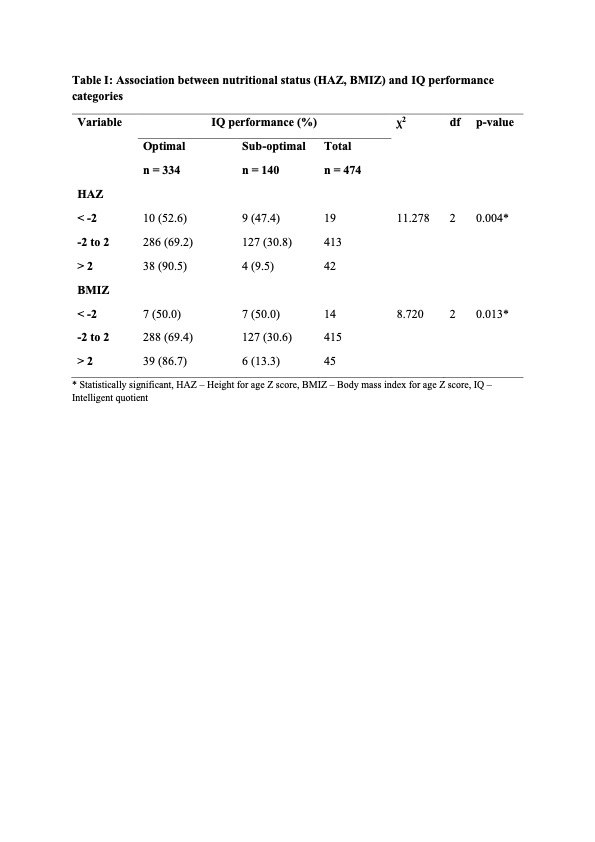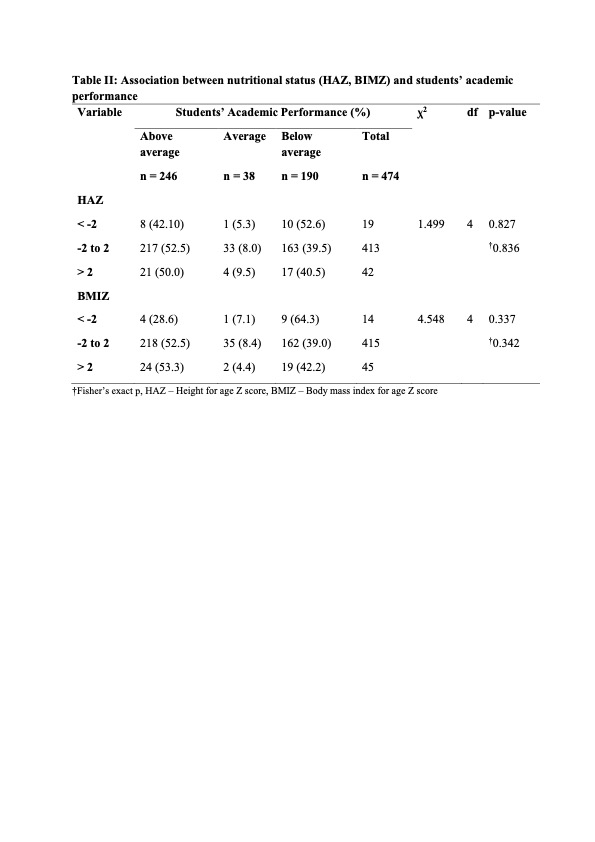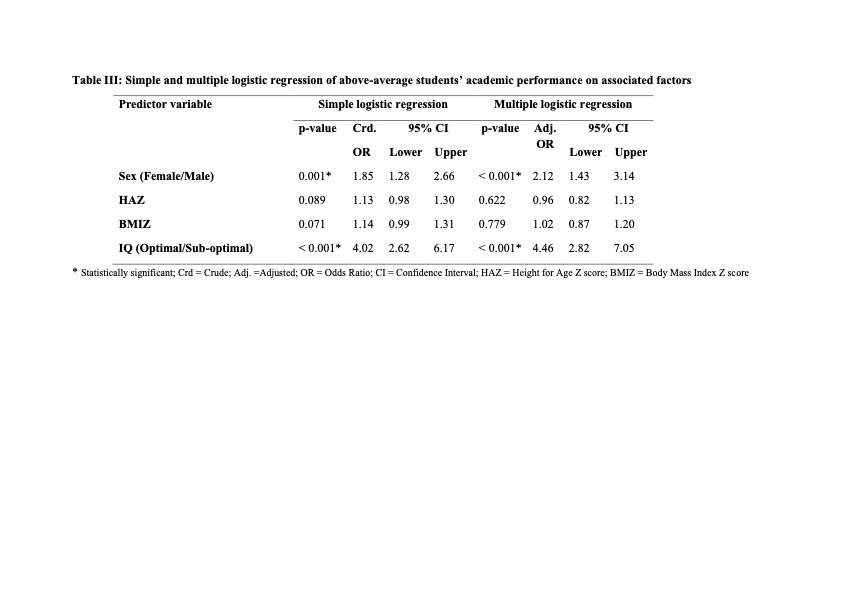Adolescent Medicine
Session: Adolescent Medicine 2
151 - Assessment of the relationship between nutritional status and measures of cognitive function of early adolescents in North-Central Nigeria
Friday, May 3, 2024
5:15 PM - 7:15 PM ET
Poster Number: 151
Publication Number: 151.330
Publication Number: 151.330

Vincent E. Nwatah, MBBS, MPH, FWACP
Pediatric Fellow
National Hospital Abuja, Nigeria
Abuja, Federal Capital Territory, Nigeria
Presenting Author(s)
Background: Early adolescence is one of the most critical periods for physical growth and cognitive development. Improved nutrition during these crucial periods enhance growth and cognition. Malnutrition remains a major public health issue especially in developing countries with much pertinence to the paediatric population who are at greater risk with more grave consequences whether immediate or delayed.
Objective: This study was therefore designed to determine the relationship of nutritional status with intelligence quotient and academic performance of early adolescent school children in Abuja.
Design/Methods: The study was a cross-sectional study conducted among early adolescent students aged 10 to 14years using a multistage random sampling technique. Excluded from the study were students with chronic illness and any form of neuromuscular deficits or physical challenge involving the limbs or spine that may affect their height and subsequently BMI. A self-administered questionnaire was used to obtain information on family and dietary history. Nutritional assessment was determined using body-mass-index-z-score (BMIZ) and height-for-age-z-score (HAZ). Ravens Standard Progressive Matrices (RSPM) was used to assess the intelligence quotient which was categorised into optimal IQ performance and suboptimal IQ performance. Academic performance was assessed using students’ average academic year performance and categorised into above-average, average and below-average performance. Relevant data analyses were made to determine the relationship between nutritional status on the one hand and intelligence quotient and academic performance on the other with the level of significance set at p-value < 0.05 at 95% confidence interval.
Results: A total of 474 students with mean (SD) age of 12.4years (±1.2) and 11.8years (±1.2) for public and private schools respectively were studied, with male to female ratio of 1:1. Although stunting and wasting were associated with a tendency for suboptimal IQ performance while being overweight or wasted was associated with below average academic performance, these associations were not statistically significant (p= 0.836 and 0.342 respectively). Female students were 2 times more likely to score above average than male students (OR = 2.12; 95CI = 1.43 to 3.14). Students with optimal IQ performance 338 (71.3%) were more likely to have above average academic performance compared to those with sub-optimal IQ performance 136 (28.7%). OR = 4.46; CI = 2.82 to 7.05.
Conclusion(s): The study showed that there was no significant association between nutritional status and either IQ or academic performance.



